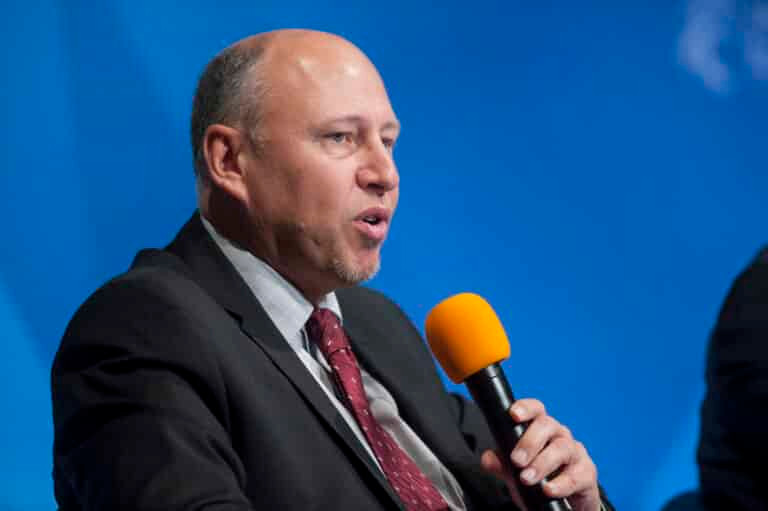The biggest issue facing the aviation industry today is sustainability. Though it is at the top of many companies’ agendas, for true change to be realised it is imperative that companies are fully invested in the process of making the industry, and the world, more sustainable in all senses of the word.
The International Air Cargo Association (TIACA) is leading the way for the sector and in April released the industry’s first sustainability report. The Organisation performed a widespread industry survey and analysed the results to form a “ground zero” assessment by which future progress can be measured.
The report’s findings will also feed TIACA’s overall sustainability strategy and support enhanced work programs addressing each of the organisations three key areas: People, Planet, Prosperity, supported by innovation and partnership.
“We see that TIACA has a very important role to play in terms of spotlighting and showcasing as many initiatives we can that positively impact, People, Planet or Prosperity,” Glyn Hughes, TIACA director general told ACW.
“This is also why we established the TIACA Sustainability Awards and why we encourage every organisation, not just TIACA members, to submit a nomination. We want to show the world the great innovative spirit that runs through the entire air cargo community.”
Innovative spirit
Aviation currently accounts for 2.5% of global CO2 emissions but alternatives to conventional jet fuel are being explored and it is the industry’s innovative spirit that will drive this change.
IATA believes innovative SAF programmes will make a large contribution to cutting emissions and huge investments by the likes of AFKLMP, DB Schenker and Kuehne+Nagel to name just a few have already been made. Though SAF plays an important role in creating a greener cargo industry, it is not the only approach stakeholders can adopt to become environmentally cleaner.
“There is so much being done in this area by all sectors of the supply chain,” said Hughes. “From energy efficiency, renewable energy sources, digitalisation of process, next generation of air and ground vehicles, electrification of ground based vehicles, recycling programs, technological developments regarding single use plastics, reduction of packaging waste, optimisation of facility usage… the list is really quite exciting.
“It’s true to say that innovation will lead the way and the most important fact is that everyone is on the case.”
Digital drive
Environmental sustainability does stand in isolation, other components, namely the digitalisation of the industry, which has been a big topic of conversation, will play an important role.
“Digitalisation is about efficiency and optimisation, about organisational benefits that also translate into employee and customer benefits. From reduced physical paper to greater utilisation of assets and resources, there are many benefits derived from a digitalised approach to business. Optimisation and efficiency also directly translate into great-reduced environmental impact. It’s about moving everything forward,” Hughes explained.
A global community
Part of creating a socially sustainable industry is about fostering content and nurtured staff. Without a valued workforce, making change in the industry and in the wider world is impossible.
“We need to ensure we have an inclusive and diverse workforce, offering opportunities to all sectors of society regardless of age, education, gender, religion, ethnicity, orientation or any other differentiator which makes us all unique. We need to provide opportunities for education and growth,”said Hughes.
“We also need to recognise the role the industry plays in the wider global community. Air cargo provides opportunities for countries to get their products to global markets supporting national economic prosperity and aligned to the United Nations 17 Sustainable Development Goals. And whilst providing these opportunities, we need to do so with environmental responsibility at the heart of what we do. We have a collective responsibility to leave the planet in a better condition than that which we find it today.”
Complete sustainability
What can the industry to achieve the goal of complete sustainability? Hughes told ACW:“It starts with us all recognising the role we can play as individuals then as companies then as a community.
“The more we identify common objectives and goals the greater the ability for the community to collaborate in their attainment. Communities challenge each other, support each other and show each other through tangible actions. We also hope the TIACA sustainability awards will help in this direction as well. Best practices and great results will inspire others to follow and strive to succeed.”


